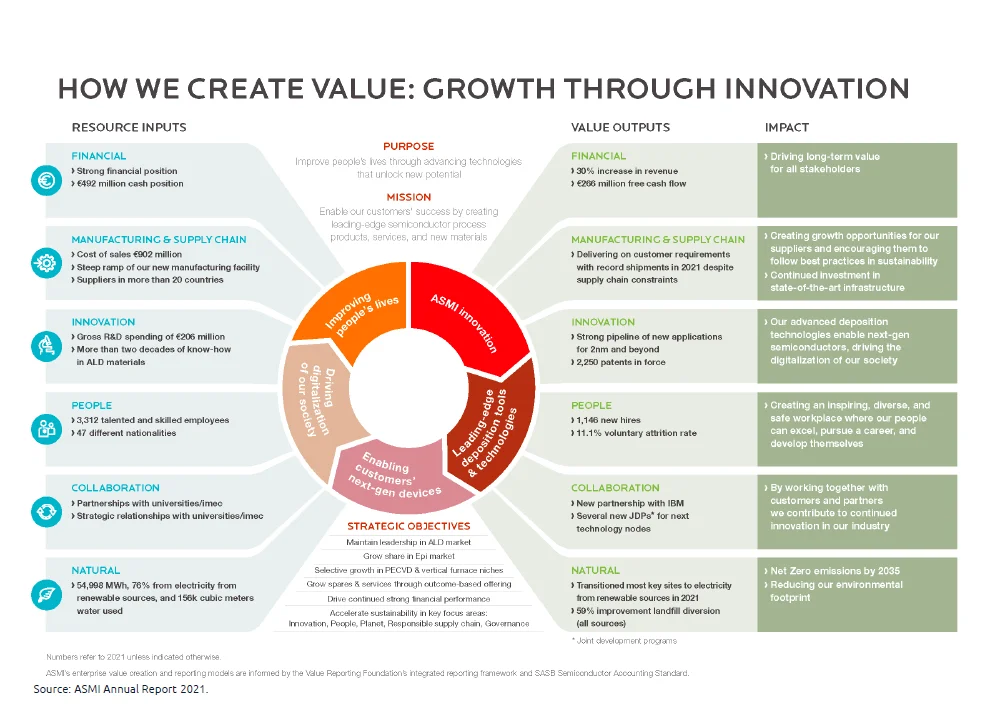Antwort How can HR create value for stakeholders? Weitere Antworten – How does HR create value for external stakeholders
If your primary goal is to focus on the expectations of these internal stakeholders, HR's focus is clear. On the other hand, to create sustainable value for external customers and investors, HR departments should focus their agendas on playing an important role in orchestrating the company's flow of information.How do you engage and involve your stakeholders in the HR Solutions change process
- Identify your stakeholders.
- Communicate clearly and consistently.
- Involve them in decision making and problem solving.
- Recognize and reward their contributions.
- Monitor and evaluate their engagement.
- Adapt to changing needs and expectations.
HR motivates workers to perform at the highest level possible and maintain an organizational culture of high morale. A primary way HR adds value to a company is by persuading company leaders to train and develop employees and reward strong performance through increased compensation and regular promotions.
How can HR add the most value in the strategic planning process : Providing the Advisory Role: HR's advisory role in the strategic planning process is multifaceted, focusing on aligning human capital management with business objectives, advising/recommending and providing training on best practices in workforce management, and ensuring that the organizational culture and structure …
What creates value for all stakeholders
Stakeholder value involves creating the optimum level of return for all stakeholders in an organization. This is a more broad-based concept than the more common shareholder value, which usually focuses just on maximizing net profits or cash flows.
How do HR professionals interact with external stakeholders : HR professionals should be proactive in sharing relevant information. Stakeholder Mapping: Identifying key stakeholders and understanding their interests, concerns, and influence levels is crucial. This information guides HR in prioritising efforts and resources.
Relationships and communication are key. Building solid relationships with key stakeholders, communicating effectively, and collaborating across functions are essential for an HR professional to gain influence and drive change. Continuous learning and development are crucial.
When the HR takes care of the employees with the customers in mind, they will have a greater impact on the service delivery process. That customer driven strategy will contribute to the overall success of the organization in customer service excellence.
How does HR impact business value
HR leaders can ensure workers understand how their work aligns with company values and overall mission, employee performance is measured, the workforce remains engaged and motivated; and the organization is well-positioned for any upheaval.4 Ways HR Function Can Add Value to the Business
- People and Performance.
- Talent Acquisition and Retention.
- Protection from Lawsuits.
- Participation in Strategic Planning.
Benefits of HR as a Strategic Partner
- Understand the details behind the company's vision.
- Be involved in identifying and defining the current and future goals.
- Partner with Senior Leadership in the development of your candidate profile.
- Design and deliver a strategy for attracting and retaining key talent.
Both internal and external stakeholders are necessary for success, so companies shouldn't focus on one while neglecting the other. Instead, focus on maximizing value for each to ensure long-term profitability.
How company executives create the most value for all stakeholders :
- Do not manage earnings or provide earnings guidance.
- Make strategic decisions that maximize expected value, even at the expense of lowering near-term earnings.
- Make acquisitions that maximize expected value, even at the expense of lowering near-term earnings.
- Carry only assets that maximize value.
Why is stakeholder engagement important to HR professionals : By actively engaging with stakeholders, HR can build trust, credibility, and respect, thereby fostering partnerships that can be mutually beneficial. These relationships can help HR navigate complex situations, resolve conflicts, and leverage external resources to support organisational success.
What is the role of stakeholders in HR
Stakeholder management involves identifying, engaging, and satisfying the diverse groups or individuals who have a vested interest in an organisation's operations and outcomes. In the context of HR, stakeholders can be categorised into internal and external groups, each with unique needs and expectations.
Let's go over four of the ways that HR adds value to the business.
- People and Performance.
- Talent Acquisition and Retention.
- Protection from Lawsuits.
- Participation in Strategic Planning.
HR professionals can help build a learning program that helps managers analyze the industry at both a macro and micro level, understand details that will affect their decisions, and develop their identity as leaders.
How does HR drive business value : By using data to inform decisions about recruitment, retention, and training, HR can help drive better business outcomes. Align people strategies with business goals: HR should have a deep understanding of the company's business goals and use that knowledge to develop people strategies that align with those goals.








